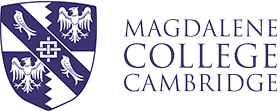Identity area
Type of entity
Person
Authorized form of name
Norton, Edward Felix (1884-1954), army officer and mountaineer
Parallel form(s) of name
Standardized form(s) of name according to other rules
Other form(s) of name
Identifiers for corporate bodies
Description area
Dates of existence
21 February 1884 - 3 November 1954
History
Major Edward Norton was a member of the 1922 and 1924 British Mount Everest Expeditions, serving as Acting Leader in 1924 after General Charles Bruce was taken ill.
Edward Norton was born on 21 February 1884 in Argentina, the second son of Edward Norton, a director of the Royal Mail and Union Castle shipping lines, and his wife, Edith Sarah. He was educated at Charterhouse School and the Royal Military Academy, Woolwich, and was commissioned in 1902. In 1907 he was posted to Meerut, India, first with the Royal Field Artillery, then from 1910 with the Royal Horse Artillery. During this period he was aide-de-camp to the viceroy.
Norton served in France during the First World War. He was mentioned in dispatches three times, was appointed to the DSO, and was awarded the Military Cross. After the war he commanded D Battery in India and later served on the staff at Chanak.
On 18 December 1925 he married (Isabel) Joyce. They had three sons.
He attended the Staff College and later the Imperial Defence College, and returned to India as senior instructor at the Staff College at Quetta (1929–32). He then became commander, Royal Artillery, to the 1st division at Aldershot, and subsequently brigadier-general staff to the Aldershot command. In 1937 he was appointed aide-de-camp to King George VI, in 1938 he commanded the Madras district, and in 1939 he was appointed CB.
1940-41 - acting governor and commander-in-chief in Hong Kong. While there he was severely injured in a riding accident, from which he never fully recovered. It forced his retirement in 1942. He was granted the honorary rank of Lieutenant-General. After returning to England he became commander of the north Hampshire sector of the Home Guard (1942–4); when the Home Guard was disbanded he went on to serve as Hampshire's county Army Cadet Force commandant (1944–8). In 1947 he was appointed colonel commandant of the Royal Horse Artillery.
Norton was an alpine climber and in 1922 was selected for the second British Mount Everest expedition. With George Mallory and Howard Somervell he reached the then record height of 26,985 ft. They were the first to pass the critical level of 8,000 metres, and this without supplementary oxygen.
On the 1924 Everest expedition he took charge when the leader, Charles Bruce, was taken ill. He led the first serious summit attempt. Again he climbed without oxygen, an aid for which he had little respect. At 28,000 ft his companion, Somervell, was stopped by severe throat trouble and Norton continued alone to a height of 28,126 ft. He reached the great couloir on the north face, which later became popularly known as Norton's couloir. This, too, was an altitude record, and it was fifty-four years before anyone climbed higher without oxygen.
Another summit bid was undertaken a few days later by Mallory and Irvine, from which neither man returned. Norton handled this tragedy and the publicity with impeccable dignity. He also wrote the greater part of the official expedition book, The Fight for Everest, 1924.
He was a fine horseman, a keen shot, and an enthusiastic fisherman. He was also interested in natural history, and on his trips to Everest made collections of birds and flowers for the British Museum. He was a skilled draughtsman and watercolourist, with a preference for painting landscapes, several of which have been reproduced in the Everest literature. He also had a talent for quick and often witty sketches of his companions. A man of many interests, he was widely read, well informed, and a charming companion. Integrity was the essence of his character. He was a born leader and, in the army, popular with all ranks; he understood and got on well with Indians and with the Gurkhas, Sherpas, and Bhotias on Everest.
Norton died at his home, Morestead Grove, Morestead, Winchester, on 3 November 1954, survived by his wife, Joyce.
Places
Legal status
Functions, occupations and activities
Mandates/sources of authority
Internal structures/genealogy
General context
Relationships area
Access points area
Subject access points
Place access points
Occupations
Control area
Authority record identifier
Institution identifier
Rules and/or conventions used
Status
Level of detail
Dates of creation, revision and deletion
Language(s)
Script(s)
Sources
Oxford Dictionary of National Biography

